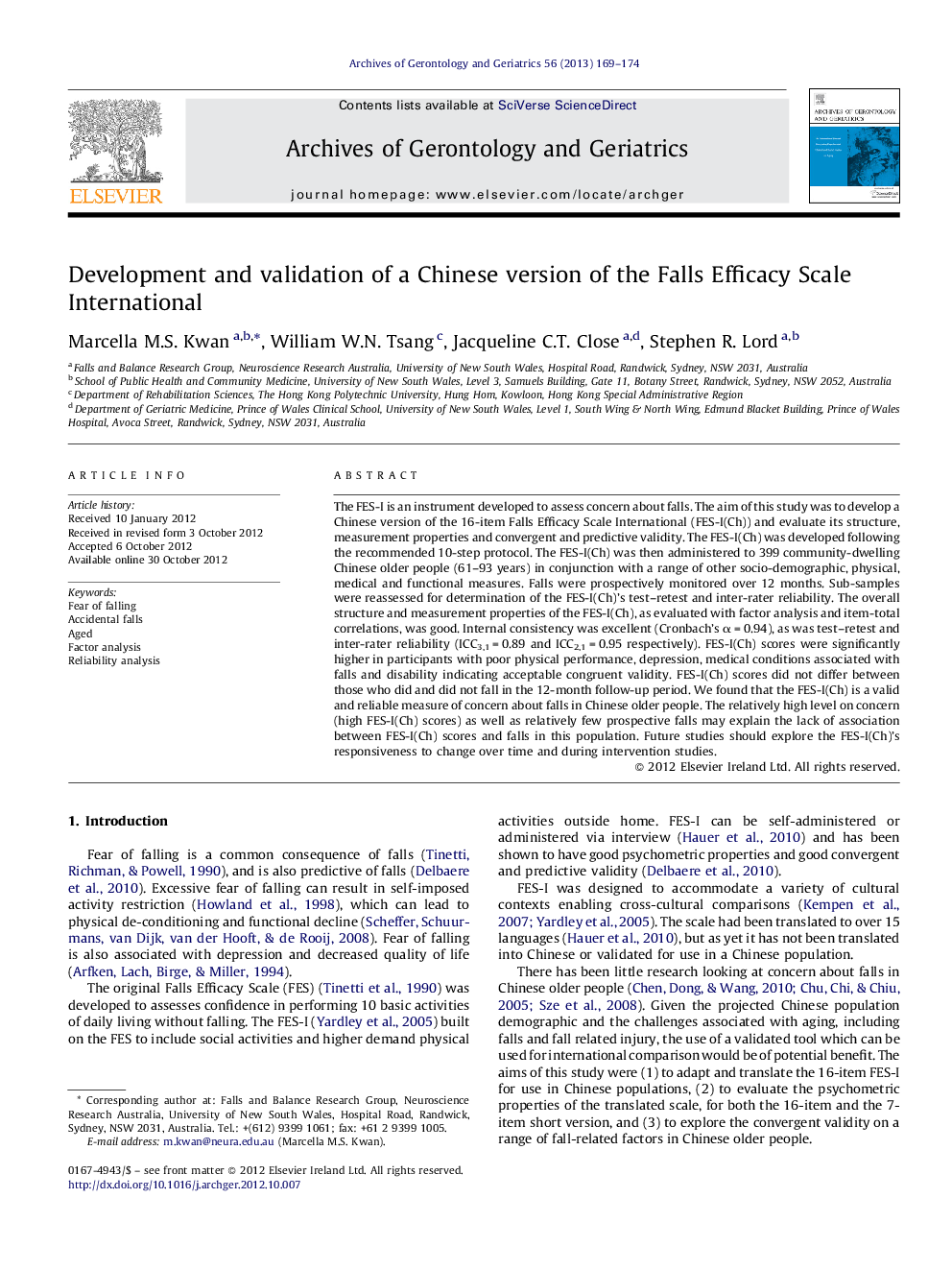| Article ID | Journal | Published Year | Pages | File Type |
|---|---|---|---|---|
| 8258103 | Archives of Gerontology and Geriatrics | 2013 | 6 Pages |
Abstract
The FES-I is an instrument developed to assess concern about falls. The aim of this study was to develop a Chinese version of the 16-item Falls Efficacy Scale International (FES-I(Ch)) and evaluate its structure, measurement properties and convergent and predictive validity. The FES-I(Ch) was developed following the recommended 10-step protocol. The FES-I(Ch) was then administered to 399 community-dwelling Chinese older people (61-93 years) in conjunction with a range of other socio-demographic, physical, medical and functional measures. Falls were prospectively monitored over 12 months. Sub-samples were reassessed for determination of the FES-I(Ch)'s test-retest and inter-rater reliability. The overall structure and measurement properties of the FES-I(Ch), as evaluated with factor analysis and item-total correlations, was good. Internal consistency was excellent (Cronbach's α = 0.94), as was test-retest and inter-rater reliability (ICC3,1 = 0.89 and ICC2,1 = 0.95 respectively). FES-I(Ch) scores were significantly higher in participants with poor physical performance, depression, medical conditions associated with falls and disability indicating acceptable congruent validity. FES-I(Ch) scores did not differ between those who did and did not fall in the 12-month follow-up period. We found that the FES-I(Ch) is a valid and reliable measure of concern about falls in Chinese older people. The relatively high level on concern (high FES-I(Ch) scores) as well as relatively few prospective falls may explain the lack of association between FES-I(Ch) scores and falls in this population. Future studies should explore the FES-I(Ch)'s responsiveness to change over time and during intervention studies.
Related Topics
Life Sciences
Biochemistry, Genetics and Molecular Biology
Ageing
Authors
Marcella M.S. Kwan, William W.N. Tsang, Jacqueline C.T. Close, Stephen R. Lord,
